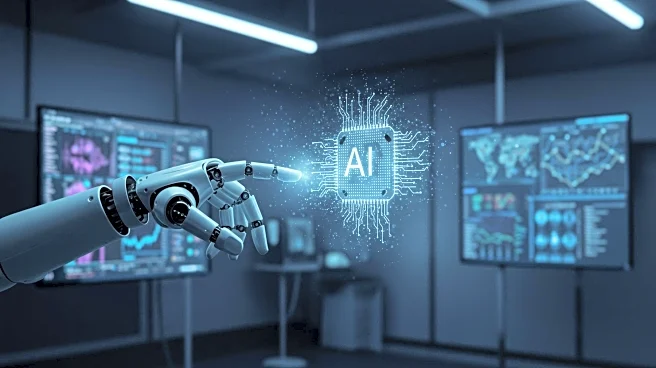What's Happening?
Elon Musk attempted to enlist Mark Zuckerberg in his bid to purchase OpenAI, as revealed in a court filing. Musk identified Zuckerberg as a potential financier for the $97.4 billion acquisition of the ChatGPT maker. However, neither Zuckerberg nor Meta participated in the bid, which was formally rejected by OpenAI's board in February. Musk's interest in acquiring OpenAI stems from his involvement in its founding and subsequent departure from its board due to strategic disagreements. The filing highlights Musk's ongoing legal battles with OpenAI, as he challenges its restructuring and commercial focus.
Why It's Important?
Musk's efforts to acquire OpenAI reflect the high stakes and competitive nature of the AI industry, where companies seek strategic partnerships and acquisitions to bolster their capabilities. The rejection of Musk's bid underscores the importance of maintaining control over AI innovations and the potential impact on market leadership. This development may influence investment strategies and collaborations within the tech sector, as companies navigate the complexities of AI research and commercialization. The rivalry between Musk and OpenAI could lead to further legal and strategic challenges, affecting industry dynamics and stakeholder interests.
What's Next?
The court filing may prompt further legal actions, with OpenAI seeking documentation from Meta regarding communications with Musk. The competitive landscape in AI may drive companies to pursue aggressive talent acquisition and technological advancements. Stakeholders, including tech firms and investors, will closely watch these developments to assess potential impacts on the AI market and strategic opportunities. The ongoing rivalry may also spark discussions on ethical considerations and regulatory measures in AI development.









